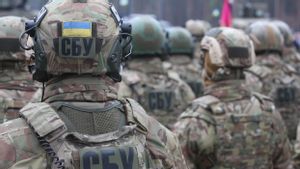JAKARTA - BPOM requires processed foods containing liquid nitrogen (Liquid Nitrogen/LN) to be produced by compactery.
"The manufacture also has conditions in dealing with LN with competence. There are personal protective equipment, such as wearing eye protection, face, gloves, shoes and suits," said Deputy for Food Control of BPOM RI Rita Endang who was confirmed in Jakarta, Friday, January 13.
Competitives must be able to adjust the products made to meet the food grade standards at ideal temperatures, ranging from 50-52 degrees Celsius.
Processed food containing liquid nitrogen has a boiling point of minus 195 degrees Celsius. While the freezing point is minus 200 degrees Celsius, or the criterion is very cold.
At that point, said Rita, it has the potential to trigger a burning throat, because the temperature is very cold and directly comes into contact with the body's organs.
LN is a diatomic liquid that is in a liquid state at very low temperatures.
LN is a clear, colorless fluid to speed up freezing, but it risks causing inflammation. Negative effects of excessive inhaling nitrogen can cause dizziness, nausea, vomiting, loss of consciousness, rapid breathing, shortness of breath without warning, and death.
"If there is skin and eye contact, it can cause severe cold burns and cold inflammation," he said as quoted by Antara.
For this reason, mixers and producers must make special warnings for consumers about the risk of danger from the LN content in processed foods.
"It should not be in a very cold condition, make sure LN disappears by looking at the vapor vapor. Nitrogen must have no steam, let it rest until the vapor disappears," he said.
For consumers, especially children, said Rita, they must be accompanied by parents who understand risk factors.
"It is not allowed to be consumed because it contains very high gas, LN in processed food can be 700 times the pressure. This is very dangerous, if it is exposed to the skin it can become moisturized and if it is swallowed it injures the stomach," he said.
The component, according to Rita, is very dangerous for consumers who are suffering from asthma.
"If we don't follow the rules, we recommend to the health office as the supervisory authority. BPOM provides recommendations for the Health Office to provide education," he said.
For this reason, BPOM together with a number of relevant authorities have compiled guidelines for processed food production containing LN.
"We have conveyed the circular to all BPOM Technical Implementation Units (UPT) in the regions. They are collaborating with local governments and educating local governments, especially school children," he said.
The policy was implemented after reports of poisoning of Chiki Ngebul products or the dragon sword which is now loved by consumers from among children.
The Ministry of Health reports that so far there have been 29 reports of cases of poisoning by Chiki Ngebul in a number of areas, such as Ponorogo, Bekasi, and Tasikmalaya, namely 10 symptomatic cases and 19 others asymptomatic.
"BPOM has also evaluated the incident of Chiki Ngebul since January 6, 2022. There has been supervision and guidance has been carried out," he said.
The English, Chinese, Japanese, Arabic, and French versions are automatically generated by the AI. So there may still be inaccuracies in translating, please always see Indonesian as our main language. (system supported by DigitalSiber.id)













